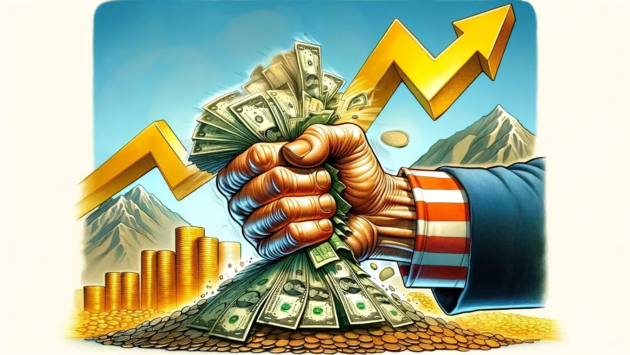
Intro by Daniel Iversen
Billionaire investor and Bridgewater founder Ray Dalio famously said, “If you don’t own gold, you know neither history nor economics.”
Now, in a revealing article penned for LinkedIn, Dalio reveals how markets really work, why central banks own gold, the main reason he owns gold too, and why he wants you to ask yourself if you have enough.
Do You Have Enough Non-Debt Money?

Good money is both a good medium of exchange and a good storehold of wealth that is widely accepted around the world. The most globally recognized and accepted monies are the dollar, to a lesser extent the euro, to a much lesser extent the yen, and to an even lesser extent the Chinese renminbi. These monies are held in debt assets—i.e., they are debt-backed money—i.e., currency = debt. In other words, when you hold these monies, you are holding debt liabilities, which are promises to deliver you money.
History and logic show that when there are big risks that the debts will either 1) not be paid back or 2) be paid back with money of depreciated value, the debt and the money become unattractive. Since debts are promises to pay money, when a government has too much debt to be paid, its central bank is likely to print money. This prevents a big debt squeeze from happening by devaluing the money (i.e., inflation).
Gold, on the other hand, is a non-debt-backed form of money. It’s like cash, except unlike cash and bonds, which are devalued by risks of default or inflation, gold is supported by risks of debt defaults and inflation. It is held by central banks and other investors for this reason. In fact, gold is the third-most-held reserve currency by central banks, more so than the yen or renminbi. Cryptocurrencies are also non-debt monies. I don’t know of any other types of non-debt monies, though some people might argue that gems and art act similarly because they are non-debt, portable, and widely accepted storeholds of wealth.
When the financial system is working well—which is when there aren’t debt and inflation crises and the borrower-debtor governments printing debt-backed monies are meeting their obligations and paying their interest without printing and devaluing money—debt assets and other financial assets are good assets to hold; on the other hand, when the reverse is the case, gold is a good asset to own. That’s the main reason that gold is a good diversifier and why I have some in my portfolio.
PS: To be clear, I am trying to share my thoughts with you about investments but not give investment advice. So I am not recommending that you buy gold. In my communications with you, I am trying to convey to you how the markets work, explain what I think you should be aware of, and give some strategic investment thinking.




